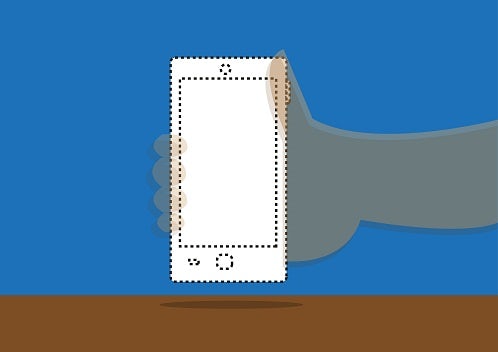
Ever imagine what a business trip would be like without your smartphone? Most of us would shudder at the thought. Business traveller and VentureBeat columnist John Koetsier actually lived through the experience. And he promises it wasn’t a very enjoyable one. To put it as bluntly as he did, the words he used were: “It sucks.”
After rushing out the door with last-minute tasks before his flight, after it was already too far and too late to turn back, he realised he left his smartphone sitting prettily on his kitchen counter. He wasn’t happy when he realised he was missing what he deemed “an almost essential piece of (his) brain,” and his entire week was one of suffering.
Missing Out
It quickly became evident how much we’ve come to rely on our smartphones when Koetsier outlined everything he missed during that very trying week. His list included:
- Music, which he had on his phone to enjoy at night
- Camera, which he typically used to grab quick pix multiple times each day
- Maps, which he consistently used to get places he needed or wanted to go
- Books, which he liked to read a bit before sleeping
- Mirror, which he gazed in after lunch to check for spinach between his teeth
- Transportation, with no way to Uber for a car
- Fun, with a regular three minutes of games fit in during schedule downtime
- Memory, with no reminders from Siri or quick notes taken on the fly (without the old-fashioned tools of paper and pen)
- Massive brainpower, with Google no longer instantly at his fingertips
- Reality bubble, which keeps him updated on things he cares about, not the stuff in newspapers that other people care about
- Social, missing the steady stream of alerts that reminds him he’s connected to people he knows and loves. (On desktop, you have to seek social out. On smartphones, it comes to you.)
- Dinner diversion, with the smartphone a prime diversion when on business trips eating alone
The Mobile Mindset
Koetsier pointed out that smartphones allow people to be alone together and together alone. Being alone together means being the physical presence of others but spending most of your time on the smartphone. Being together alone means being physically alone but connected with pals through social media. Without your smartphone, you get neither. Without his smartphone, he was just alone.
His laptop came to the rescue, serving as lifeline through the tumultuous time without his smartphone. He engaged on social media. He wrote down directions from Google Maps and carried them in his pocket. He even admitted to using his laptop sideways on his bed in the morning to catch up with his hometown happenings on Facebook. Although he survived the week, he was not happy – a dire warning for others who may forget their smartphone on a business trip.
In addition to all the ways mentioned above, you can also use your smartphone to help manage travel expenses with Chrome River expense claim software.
Search
Subscribe
Latest Posts
- UK Finance Leaders Reveal Biggest Concerns for the Post-COVID Recovery
- 9 Signs it’s Time to Switch Expense Management Systems
- Gartner and Ardent Partners Advise How to Build a Best-in-class Accounts Payable Operation
- When Cash (Control) is King: Is Your Accounts Payable Strategy Optimised for a COVID-19 World?
- Getting the Most Out of Your Spend Data with Emburse Insight Advisor
Posts by Category
Our choice of Chrome River EXPENSE was made in part due to the very user-friendly interface, easy configurability, and the clear commitment to impactful customer service – all aspects in which Chrome River was the clear winner. While Chrome River is not as large as some of the other vendors we considered, we found that to be a benefit and our due diligence showed that it could support us as well as any large players in the space, along with a personalized level of customer care.
We are excited to be able to enforce much more stringent compliance to our expense guidelines and significantly enhance our expense reporting and analytics. By automating these processes, we will be able to free up AP time formerly spent on manual administrative tasks, and enhance the role by being much more strategic.